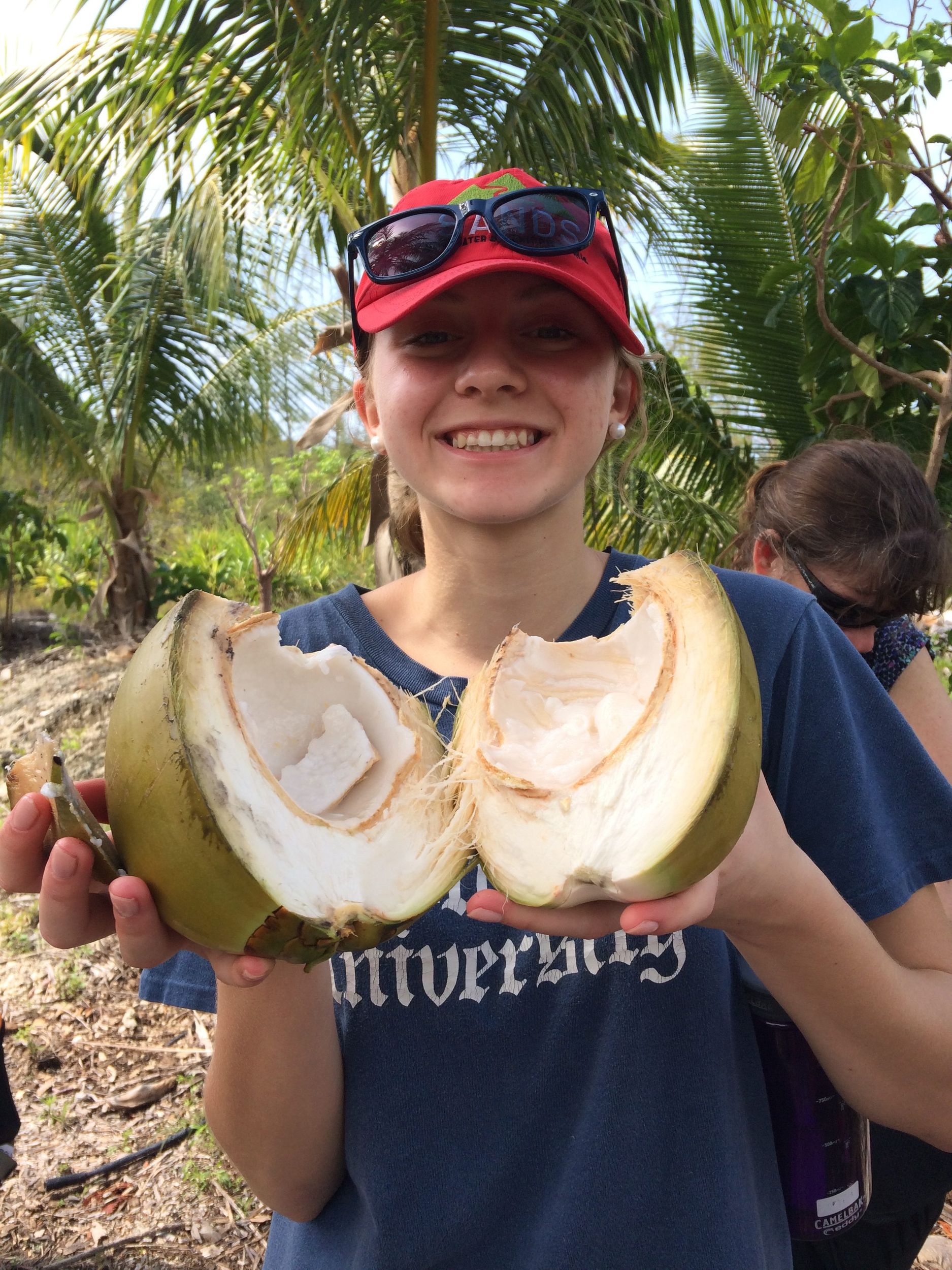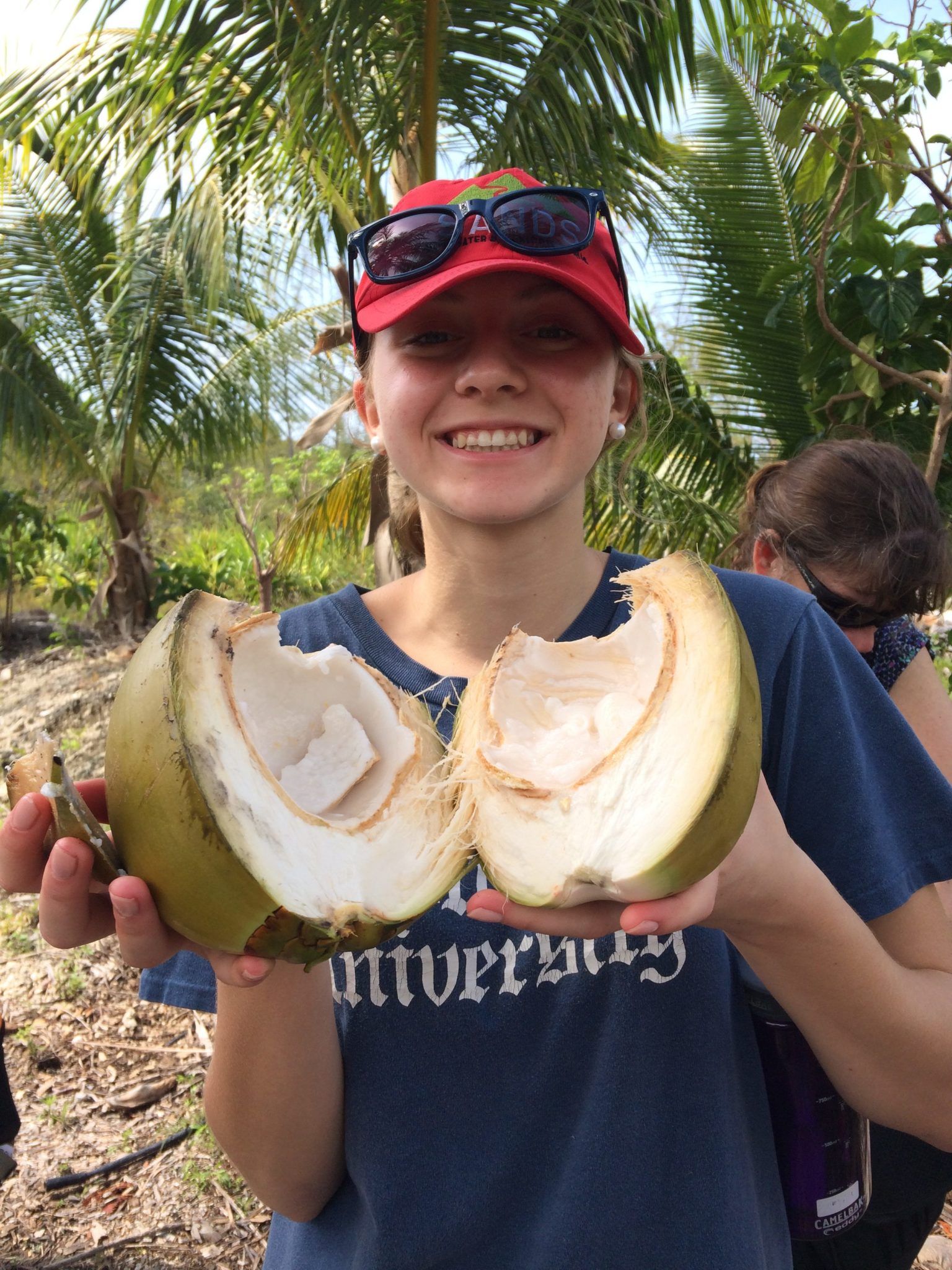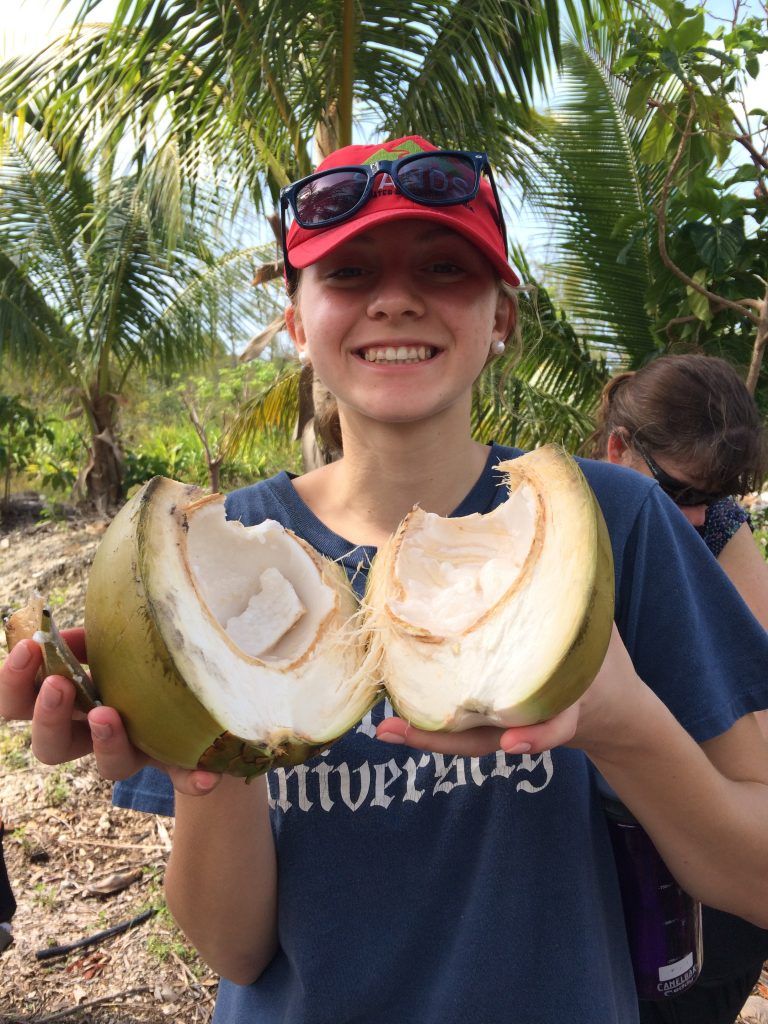Jill O’Connor ’19 and Sophie Opler ’19 learn about sustainable efforts through aquaponics and permaculture while trying some “delicious” island foods.
On our first day observing the sustainable practices here at the Island School, we started our afternoon by exploring the aquaponics systems. Aquaponics is essentially the process of enhancing the symbiotic relationship between fish and plants while breeding tilapia and growing different types of leafy greens including arugula, kale, and lettuce. The nutrients and waste from the fish fertilize the plants, and the used water is cycled back to the fish.
During aquaponics, we had two jobs. Our first job was to sample and weigh fish from a tank. Although we assumed the task would be easy, we were easily proved wrong. No matter how quickly we moved our nets, it seemed as though the fish would quickly dart away! We eventually figured out a group method of following one fish with a net and catching it with a different net. Once we finally caught a fish, they splashed and flopped around on the scale. We each imbibed several splashes of salty water. Yum!
Our second chore at the aquaponics area was to clean the bottoms of the plant tanks. Since the only source of energy is a single pump and gravity, we created a vacuum out of tubing that we activated by inhaling on one side of the tube while the other side is still in the water. Although Donovan warned us ahead of time before inhaling, a few of us unluckily got a good gulp of the plant water, including fish fecal matter, broken down coconut husk, and nutrients. Yum!
Later in the day while we were learning about permaculture (permanent agriculture) at the Island School, one of our tour guides, Johnny, yanked out his giant, retractable branch cutter and chopped down some coconuts. Here are other examples of delicious food that we tried while touring today:
– So-called “spicy leaves” that smelled like cloves
– Coconut (meat and water)
– Juju fruit
– Saparilla (?), which tasted like brown sugar and sweet potatoes
– Hibiscus flower
– Meringa leaves (super food)
– Sour oranges, which tasted exactly like one would imagine based on the name
Our final taste of the night took place on our night wade. We learned, allegedly, that if you kiss a sea cucumber, you will have seven years of good luck (we both kissed it)!
Throughout our first full day at the Island School, we came to understand how one of the keys to sustainability is eliminating waste. Here, all waste (“resources” as they call it) moves through a cycle; black soldier fly larvae feeds the chickens, the chickens lay the eggs that we eat, and waste from our leftover food feeds the pigs and the larvae. We finally are beginning to think about sustainability in ways other than taking “navy showers” and recycling our plastics. We’re excited to learn about more methods of sustainability in the days to come!


